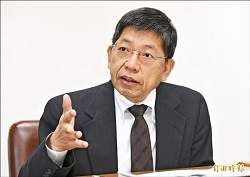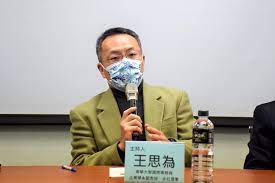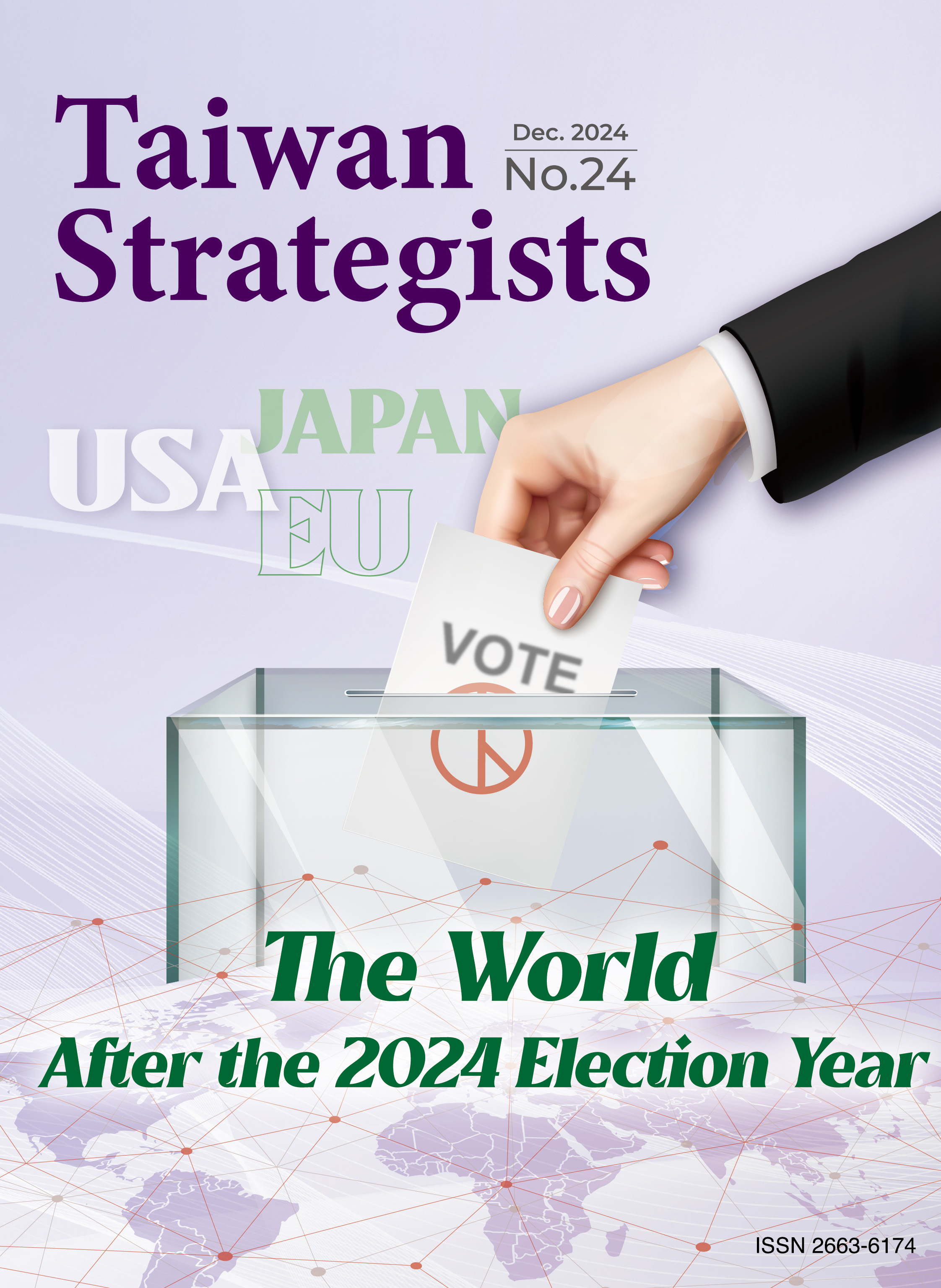Taiwan Strategists No. 24
Taiwan and the Second Trump Administration
Cheng-Yi Lin
Research Fellow, Institute of European and American Studies, Academia Sinica
Abstract
The 2024 election highlights the success of Donald Trump’s perseverance and campaign strategy, with significant implications for U.S. foreign policy. His presidency could influence the timeline for ending the war in Ukraine and the management of Xi Jinping’s actions in the Taiwan Strait. Trump’s election is likely to shape the future of U.S.-China relations and impact the economic power dynamic between the two countries, potentially exacerbated by tariffs. Taiwan’s leadership in semiconductors faces new challenges, while its long-term defense budget remains insufficient. Under increasing military threats from China and in response to Trump’s likely demands, Taiwan will need to prioritize defense improvements and preparations. The extent of Trump’s support for Taiwan’s defense will be closely watched. As a critical asset to the U.S., China, and the world, Taiwan holds a pivotal role in technology and cannot afford to be neglected. The potential deterioration of U.S.-China economic relations and stagnation in China’s annual economic growth may compel Xi to prioritize relations with the U.S. over a focus on Taiwan. Observing whether this shift could alter Xi’s agenda for a possible Taiwan campaign will be important. Nonetheless, Taiwan remains under threat from a potential Chinese invasion or blockade in the future.
Keywords: 2024 U.S. Election, Second Trump Administration, Taiwan’s Security, Cross-Strait Relations, Sino-American Competition
The Foreign Policy of Japan’s New Prime Minister and Taiwan-Japan Relations
Shih-Hui Li
Professor, College of International Affairs, National Chengchi University
Abstract
In the context of the ongoing U.S.-China competition and confrontation, Japan faces simultaneous challenges in both security and the economy. These challenges manifest themselves in the security tensions between the U.S.-Japan alliance and China alongside Japan’s economic coexistence with China. Amid this backdrop, Japan’s new Prime Minister Shigeru Ishiba has taken office, setting forth his policy direction under the theme of the “five key pillars” — upholding the rules, protecting Japan, protecting the people, protecting local communities, and protecting opportunities for youth and women. Within the existing constitutional framework and Japan’s national security strategy, there is limited room for significant changes in Ishiba’s security policies. In terms of foreign policy, he will continue to follow the path laid out by his predecessor, Fumio Kishida, by strengthening relations with allied and partner countries. Meanwhile, Japan-Taiwan relations will involve “four key issues” — a potential Taiwan contingency, regional security dynamics, linkage among democratic nations, and economic security, particularly in supply chains. In this regard, semiconductor cooperation under the banner of economic security will remain a central focus of the Japan-Taiwan relationship.
Keywords: Supply Chain, Economic Security, Taiwan Contingency, Shigeru Ishiba, Japan-Taiwan Relations
The 2024 European Parliament Elections and Their Impact on the EU’s Foreign Policy
Szu-Wei Wang
Vice-chairman, European Union Studies Association-Taiwan
Abstract
The 2024 European Parliament elections were not only a simple Europe-wide election but were also national referenda in some countries on their government’s management of the COVID-19 pandemic and the Russo-Ukrainian war. The strong showing by far-right parties has shown that a great number of Europeans are now eager for more assertive leadership to help them get out from the muck of their daily life. The new legislature in the European Parliament has shifted to the right in the political spectrum, though this change will not have a significant impact on the EU’s foreign policy. The EU should continue to insist on prioritizing the issue of climate change in its global agenda, and to intervene in humanitarian crises as it used to do in regional conflicts. Peace, stability, and prosperity will still be the core concerns of the EU’s Indo-Pacific strategy — including maintenance of the status quo in the Taiwan Strait. Cooperation between Taiwan and like-minded European countries will continue to develop in many domains. Besides the ICT and semiconductor industries, newer forms of green energy and healthcare will also be key sectors. Additionally, the recent breakthrough of former president Tsai’s visit to Europe is indicative of the extent to which relations have improved.
Keywords: European Parliament, EU Foreign Policy, Indo-Pacific Strategy, EU-Taiwan Relations, Democratic Values




